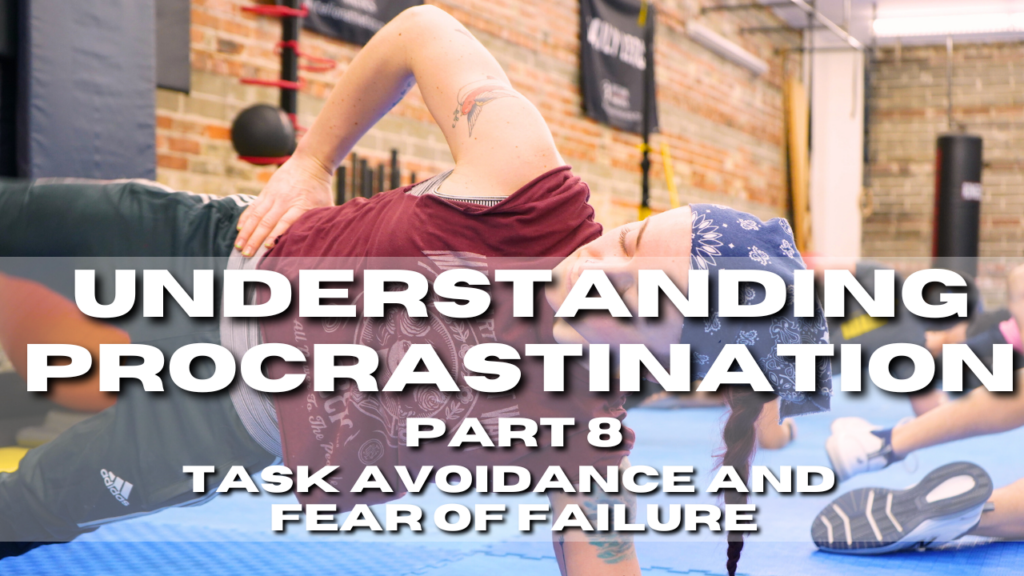
In the seventh blog, we explored the overwhelming impact of task paralysis—when the enormity of a goal freezes you into inaction. Building on the concepts from the sixth blog, where vague and overly ambitious goals were identified as significant triggers for procrastination, we now turn our focus to a new form of avoidance: task substitution.
Here’s the catch: Task substitution isn’t just procrastination; it’s the illusion of productivity. When you find yourself cleaning your kitchen instead of heading to the gym, or reorganizing files instead of tackling a major project, you’ve fallen into a mental trap. This blog dives deep into the psychology behind task substitution, showing how it stems from emotional discomfort and fear of failure. Most importantly, it provides actionable strategies to break free from these deceptive patterns and focus on what truly matters.
By the end, you’ll be armed with the tools to identify and overcome task substitution, allowing you to channel your energy into meaningful progress.
Avoiding the Task:
Imagine it’s time to head to the gym, but instead, you find yourself reorganizing your workout gear, cleaning your kitchen, or even answering emails. These tasks feel productive, right? But here’s the truth: you’re avoiding the bigger, more important task at hand—like completing that workout session or meal prepping. This behavior is known as task substitution, and it’s a sneaky form of procrastination.
When we face a task that seems challenging or unpleasant, our brains often look for an escape route. That’s when we start doing easier, more manageable tasks that make us feel like we’re being productive, even though we’re not tackling the real issue. This kind of avoidance creates a false sense of accomplishment. You feel like you’re getting things done, but the tasks that truly matter remain untouched.
The Psychology Behind Task Substitution Task substitution isn’t just a random behavior; it’s rooted in our brain’s desire to avoid discomfort, especially discomfort associated with failure or difficulty. Dr. Piers Steel, an expert on procrastination, found that people often avoid tasks they view as challenging or important because of the emotional burden attached to them—like the fear of failure or the fear of not meeting expectations. This is when we subconsciously choose smaller, less critical tasks to avoid facing those difficult feelings head-on (Steel, 2007).
For example, instead of going to the gym, you might spend 20 minutes reorganizing your workout gear. While this might feel like progress because you’re engaging in something related to fitness, it’s not the key task that will move you forward in your fitness goals. Dr. John Perry, in his work on “structured procrastination,” explains that task substitution allows us to maintain a sense of productivity while pushing away the more significant, anxiety-inducing tasks (Perry, 2012). You’ve tricked yourself into believing you’re still making progress, but in reality, you’re just avoiding what really needs to be done.
The Role of Fear of Failure A deeper reason for task substitution lies in our fear of failure. Dr. Timothy Pychyl points out that procrastination often stems from emotional responses, particularly the desire to avoid negative feelings associated with failure or inadequacy. When you substitute tasks, you’re protecting yourself from the potential disappointment of not succeeding at the harder task. For instance, if you skip the workout and reorganize your equipment instead, you don’t have to confront the possibility of struggling with the workout itself, which may be intimidating or exhausting (Pychyl, 2013).
This avoidance behavior is reinforced by the short-term relief it provides. Our brains love short-term rewards, so even though reorganizing your gym bag doesn’t bring you closer to your fitness goals, the sense of immediate accomplishment makes it a tempting alternative. It’s easier to complete a smaller, low-stakes task than it is to tackle something that might push you out of your comfort zone.
The False Sense of Productivity Task substitution is particularly dangerous because it masks itself as productivity. You might convince yourself that tidying up your space or answering a few emails is a necessary step before you dive into your workout or meal prep. But the truth is, these smaller tasks often don’t need to be done right away, and completing them doesn’t move you closer to your long-term goals.
Research on “productive procrastination” shows that while completing smaller tasks can make us feel good in the moment, it can create a cycle of avoidance. As we push off important work, the stress and anxiety surrounding that work grow, leading to even more avoidance in the future. This cycle of task substitution can become deeply ingrained, making it harder to break the habit of procrastination (Ferrari, 2010).
Breaking the Cycle The key to breaking this cycle is to recognize when you’re substituting tasks and reframe your approach. Instead of letting your brain trick you into thinking smaller tasks are essential right now, focus on the task that will provide the most significant progress toward your goals. In the case of fitness, that means prioritizing your workout or meal prep, even if it feels intimidating at first. One effective way to do this is by using strategies like the 5-minute rule, which we’ll cover later in this series. By forcing yourself to start small, you can overcome the emotional resistance tied to the larger, more important task.
Conclusion
Task substitution tricks you into believing you’re being productive while keeping you stuck in cycles of avoidance. By understanding its roots in fear of failure and emotional discomfort, you can begin to challenge these behaviors and reclaim control of your time and energy. Breaking free from this deceptive habit starts with awareness and intentional action—prioritizing meaningful tasks over superficial productivity.
In the next blog, we’ll tackle how to reframe failure and turn it into a driving force for success. Get ready to learn how to redefine your relationship with setbacks, transforming them from obstacles into opportunities for growth. The breakthrough is just around the corner!